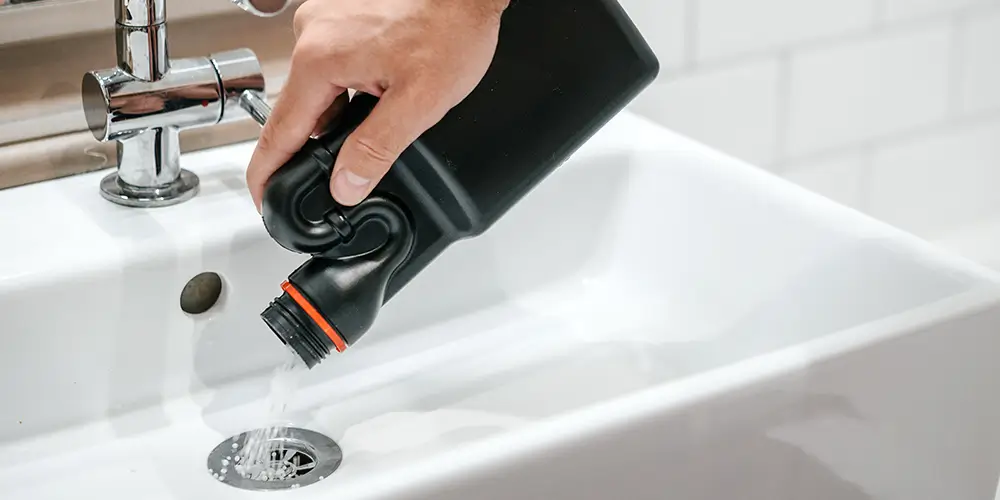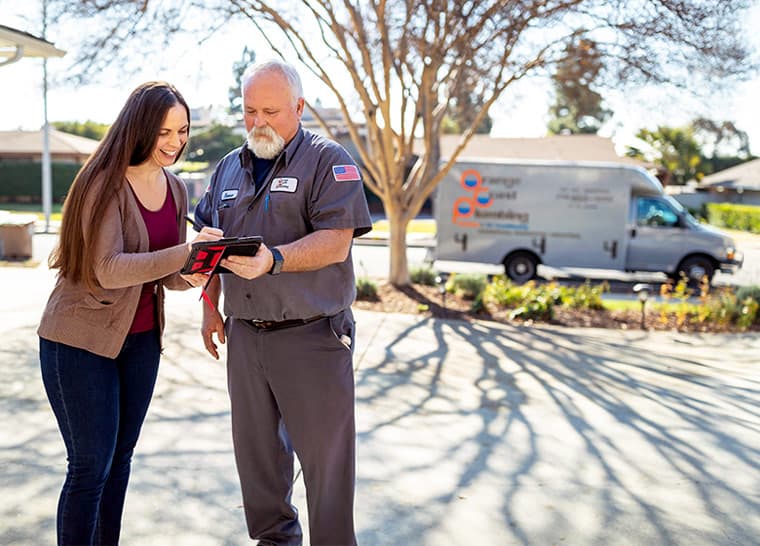Chemical drain cleaners are a go-to DIY plumbing solution for homeowners with blocked or slow drains.
However, they come with risks and can damage your pipes and septic systems if you’re not careful.
How Chemical Drain Cleaners Can Damage Pipes
All chemical drain cleaners work by oxidation. Oxidizing drain cleaners typically contain oxygen or hydrogen peroxide, while alkaline drain cleaners use sodium hydroxide or potassium hydroxide to break down the blockage.
Sodium hypochlorite is another chemical in commercial drain cleaning products, commonly known as bleach. It dissolves organic materials like grease, soap scum, and food particles that accumulate in drains over time.
Bleach is a caustic substance. Used too often, it can corrode joints and pipe connections in your plumbing system. It’s also unsafe for septic systems and can kill beneficial bacteria that keep your system healthy.
Drain Cleaners & PVC
Because PVC has a low melting point, chemical drain cleaners can cause cracking, bubbling, and discoloration in pipes. Harsh chemicals break down the plastic material, resulting in leaks and other problems in your plumbing system.
Drain Cleaners & Metal Piping
Metal pipes like copper are more resistant to corrosive drain cleaners, but the repeated application of harsh chemicals could weaken pipe walls and lead to eventual failure.
Always read the directions on any drain cleaner you purchase. Always use the correct type of cleaner for your pipes, or you could harm them instead of cleaning them.
Types of Chemical Drain Cleaners
Oxidizing, caustic, and acid drain cleaners are the most common chemical drain cleaners sold.
- Oxidizing cleaners use substances like hydrogen peroxide and oxygen to break down organic matter. They work well on grease, food particles, and paper products, but not as well on hair or soap scum.
- Caustic cleaners contain sodium hydroxide or potassium hydroxide to clear tough blockages of hair and soap scum. Caustic cleaners are highly corrosive and can be dangerous if misused.
- Acid cleaners are formulated with sulfuric acid, hydrochloric acid, or citric acid for removing mineral deposits from pipes. They’re available to licensed plumbers, but not the general public.
Oxidizing Drain Cleaners
Oxidizing drain cleaners contain peroxides, household bleach, or nitrates. They clear blockages by oxidizing organic material.
Oxidizing compounds are highly reactive, stealing electrons from other substances to break them down. The process produces heat and gas — the same reaction responsible for the fizz of hydrogen peroxide applied to a cut or the color fading of bleach.
The strength of the reaction depends on the amount of oxidizer present, the ambient heat, and the application duration.
Household bleach and hydrogen peroxide sold at the grocery store are relatively weak, as are many drain cleaners.
For instance, regular bleach contains about 5.25 percent sodium hypochlorite (household bleach). Liquid Plumr Industrial Strength Clog Remover contains between 3 and 7 percent household bleach and less than 2.5 percent sodium hydroxide (lye).
Some specialty products also contain myristamine oxide, used to stabilize foam in shampoo, or lauramine oxide, a mild surfactant (surface tension reducer) that acts as a foam booster or cleansing agent.
Oxidizing drain cleaners are great at removing food-based clogs. They’re heavy enough to sink through standing water, and the heat and gas they generate loosens hair clogs and dissolves soap scum.
They’re safe for pipes if applied per instructions.
Caustic Drain Cleaners
Caustic drain cleaners contain substances like sodium hydroxide (lye or potash) that give electrons away, making soaps and grease dissolve.
Caustic compounds like lye are present in many grease-cutting household products, including oven cleaners. Lye is also used to manufacture soap and to cure and tenderize foods.
Caustic substances excel at breaking down greasy and soapy clogs. Like oxidizing cleaners, they produce heat and gas, which helps to clear blockages.
Concentrated bases are just as reactive as concentrated acids, but since household drain cleaners only contain small amounts, they’re safe if used according to instructions.
For example, Drano Max Professional Strength Gel Clog Remover contains less than 5 percent lye and between 3 and 10 percent household bleach.
Acid Drain Cleaners
Acid drain cleaners contain high hydrochloric or sulfuric acid concentrations, which attract electrons to break up substances. Their sale is restricted for a good reason.
They’re extremely potent and can dissolve plastic, metal, and ceramic pipes, along with the clog.
How to Apply Chemical Drain Cleaners Safely
Chemical drain cleaners can damage metal and PVC pipes or break down rubber pipe fittings if applied too often or too long.
They can harm beneficial bacteria in septic systems. They’re poisonous if ingested and can burn skin, mucous membranes, and eyes. They can also react with household cleaners to produce toxic fumes.
Read the label carefully to be sure the drain cleaner you choose is safe for your plumbing. Follow all safety precautions.
- Wear protective gloves, eyewear, and long sleeves.
- Don’t pour cleaner down the drain if you’ve recently used another clog remover or a household cleaner like ammonia.
- Keep children and pets away from cleaners.
- Store cleaners safely and out of reach of children.
FAQs: About Chemical Drain Cleaners
Q: How do chemical drain cleaners work?
A: They cause a chemical reaction that generates heat and gas to break down the clog.
Q: What types of blockages are chemical drain cleaners effective against?
A: They’re effective against organic material clogs like food scraps, hair, and grease but may not work well on solid objects.
A: Can chemical drain cleaners damage plumbing pipes?
A: The corrosive nature of chemical cleaners can damage certain types of plumbing, especially with repeated use. They can degrade PVC pipes and older metal piping and damage the seals and joints.
Q: What are the signs of plumbing damage from chemical drain cleaners?
A: Indications include leaks, weakened water flow, and visible pipe corrosion or deterioration.
Q: Are there specific types of pipes more vulnerable to damage from chemical drain cleaners?
A: Older metal pipes, PVC pipes, and pipes already in a weakened condition are more susceptible to damage from harsh chemicals.
Q: What are the environmental impacts of using chemical drain cleaners?
A: These cleaners can contaminate water sources, harm aquatic life, and contribute to pollution when not handled properly.
Q: Can chemical drain cleaners pose risks to human health?
A: Exposure can lead to skin burns, respiratory issues, and eye injuries. Use them with caution and follow safety instructions.
Q: When should I consider using a natural alternative to chemical drain cleaners?
A: Natural alternatives can deal with minor clogs and maintain drain health, and they’re an environmentally friendly solution.
Q: What are some effective natural alternatives to chemical drain cleaners?
A: Baking soda and vinegar, boiling water, or a combination of dish soap and hot water are popular natural solutions for minor clogs.
Q: How can I prevent clogs without resorting to chemical drain cleaners?
Regular maintenance, avoiding disposing of grease and large food particles in drains, and using sink strainers can help prevent clogs.
Q: Are there professional methods to clear drains without chemical cleaners?
A: Plumbing snakes, hydro jetting, and professional augers are by far the most effective tools and methods to clear drain blockages.


